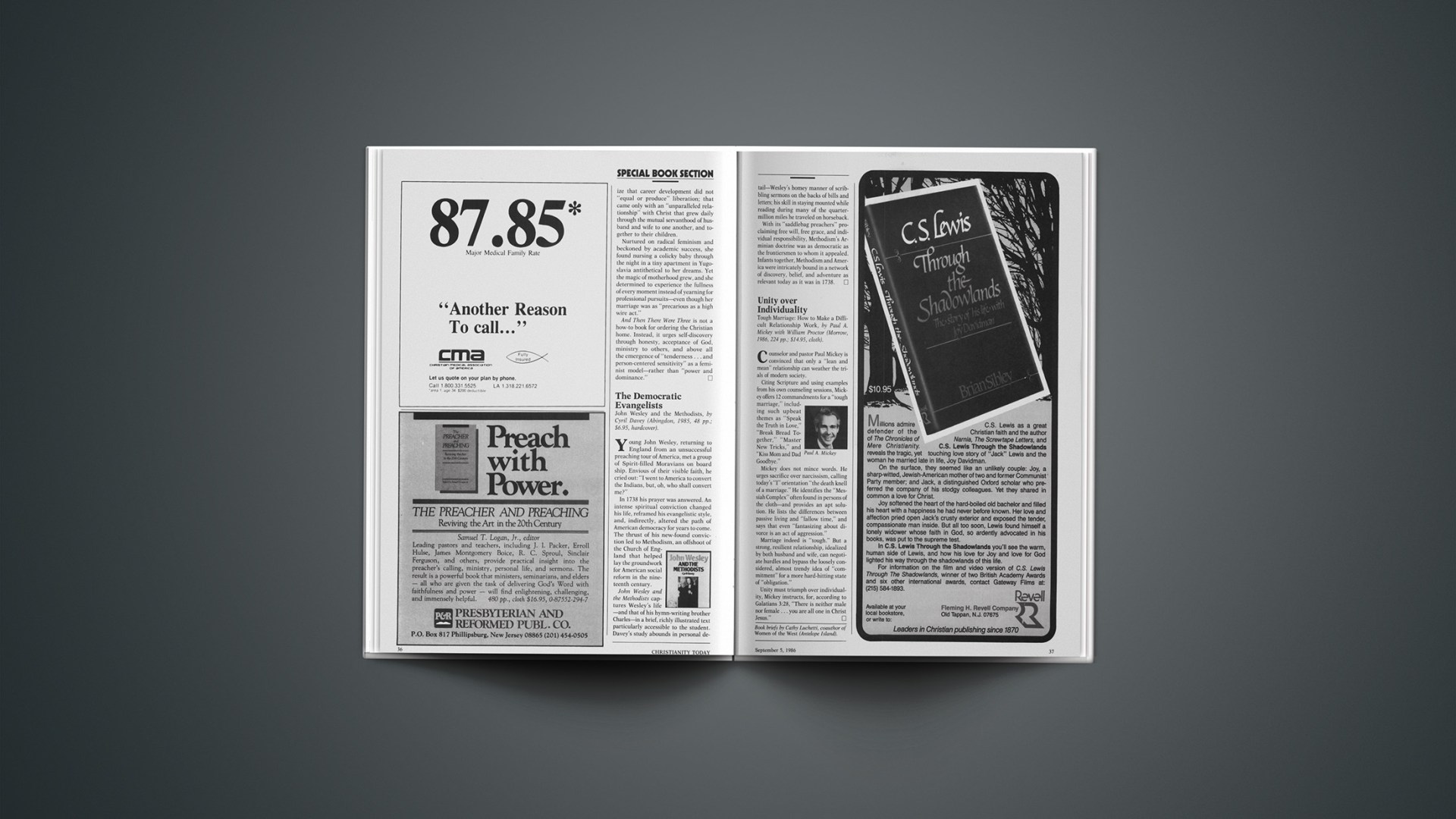John Wesley and the Methodists, by Cyril Davey (Abingdon, 1985, 48 pp.; $6.95, hardcover).
Young John Wesley, returning to England from an unsuccessful preaching tour of America, met a group of Spirit-filled Moravians on board ship. Envious of their visible faith, he cried out: “I went to America to convert the Indians, but, oh, who shall convert me?”
In 1738 his prayer was answered. An intense spiritual conviction changed his life, reframed his evangelistic style, and, indirectly, altered the path of American democracy for years to come. The thrust of his new-found conviction led to Methodism, an offshoot of the Church of England that helped lay the groundwork for American social reform in the nineteenth century.
John Wesley and the Methodists captures Wesley’s life—and that of his hymn-writing brother Charles—in a brief, richly illustrated text particularly accessible to the student. Davey s study abounds in personal detail—Wesley’s homey manner of scribbling sermons on the backs of bills and letters; his skill in staying mounted while reading during many of the quarter-million miles he traveled on horseback.
With its “saddlebag preachers” proclaiming free will, free grace, and individual responsibility, Methodism’s Arminian doctrine was as democratic as the frontiersmen to whom it appealed. Infants together, Methodism and America were intricately bound in a network of discovery, belief, and adventure as relevant today as it was in 1738.









